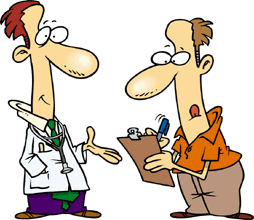
Weekly Gems from Ronda Gates.
 | Weekly Message
Weekly Gems from Ronda Gates. |
|
Until last week, when a rogue pharmacist in Missouri was charged with diluting chemotherapy drugs, polls revealed that pharmacists were the most respected professionals in the United States. Now people are having second thoughts about these health care workers charged with catching prescribing errors, watching for deadly drug reactions and warning people about over the counter (OTC) remedies and food that might form toxic combinations with prescription drugs. High profile cases--when people receive the wrong medication or the wrong dosage for the correct medication, with tragic results--have surfaced in the news for years. Nevertheless, in the last week, my fellow pharmacists report patients are super-concerned about drug tampering and wondering what they can do to assure they are getting the medication their doctor prescribed for them. These should help:  Before you give your prescription to the pharmacist, be sure you know the name and strength of the medication you are to receive and what it is for. If your doctor didn't tell you, ask the pharmacist. Write this down. Better yet, make a photo copy of your prescriptions. Many drug stores have copy machines for this purpose. When you get your prescription ask the pharmacist to show you the bottle the drug was dispensed from so you can double-check that the pills inside your bottle and the stock bottle are the same. You are at greater risk for rare dilution errors when the medication is a compounded liquid or capsule, but your attentiveness should be a warning that you are aware of the potential for error. You can also use library resources (the Physician's Desk Reference) if you want to check the illustrations for the more commonly used prescriptions. Be sure your pharmacist has a record of your allergies to medication and a list of all other medications you are taking including OTC drugs and herbal and vitamin and mineral supplements. Ask your pharmacist if the store has a sophisticated computer data base that can track your medications and personal information to alert the pharmacist to potential reactions. Other things you should do after you receive your prescriptions:
My experience is that when it comes to taking medicine, people fall into two categories: either they have blind faith about taking anything suggested to them or they don't want to take anything at all. I suggest you take the middle road. Be a skeptical consumer who gets the facts and weighs the pros and cons for the opportunities to use the pills and potions that can be your health care's most sophisticated tools. |
| Weekly Messages | Lifestyles |
|
|
1378 Casada Ct, Leisure World Mesa, AZ 85206 Phone: 480-242-4812 |
| Web Site Design by JDL Design | |